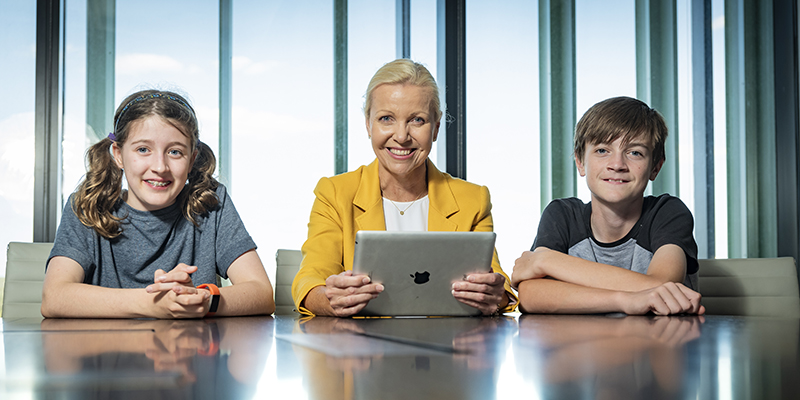Search
Showing results for "internet "
Up to one-third of young people live with chronic physical conditions (eg, diabetes, asthma, and autoimmune disease) that frequently involve recurrent pain, fatigue, activity limitations, stigma, and isolation.

Have you ever wondered how other parents manage their kids’ device use? As part of a survey for our Cyber Savvy Project, The Kids researchers asked a group of parents for their top tips regarding their child's use of devices.
We evaluate our ability to recruit participants for the Kidskin Young Adult Myopia Study, a follow-up of the Kidskin Study
Telehealth offers unique opportunities for providing access to hearing healthcare ser- vices to underserved populations
In women older than 25 years, the HPV 16/18 vaccine continues to protect against infections, cytological abnormalities, and lesions associated with HPV 16/18
The vast and growing challenges for human health and all life on Earth require urgent and deep structural changes to the way in which we live. Broken relationships with nature are at the core of both the modern health crisis and the erosion of planetary health. A declining connection to nature has been implicated in the exploitative attitudes that underpin the degradation of both physical and social environments and almost all aspects of personal physical, mental, and spiritual health.
The unprecedented global rise in mental anguish is closely linked with the erosion of our social fabric, economic and political systems, and to our natural environments. We are facing multiple new large-scale threats to health, safety, and security, with a growing lack of trust in others and in authorities.
The Opportunity This opportunity is within the Neonatal Research Group at The Kids Research Institute Australia. Our core medical and clinical

What began as a small formative research project 20 years ago has grown into a universal bullying prevention and social skills development program which has helped countless Australian children and their families.
We report vaccine efficacy against CIN3+ and adenocarcinoma in situ (AIS) in the end-of-study analysis of PApilloma TRIal against Cancer In young Adults.
